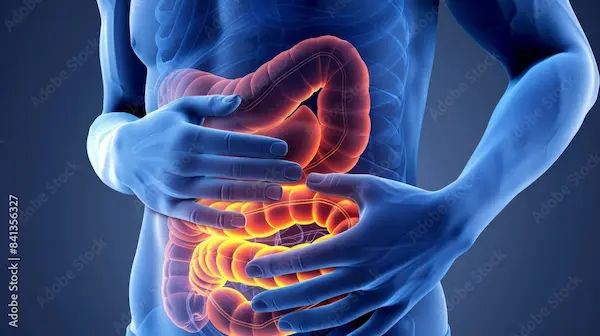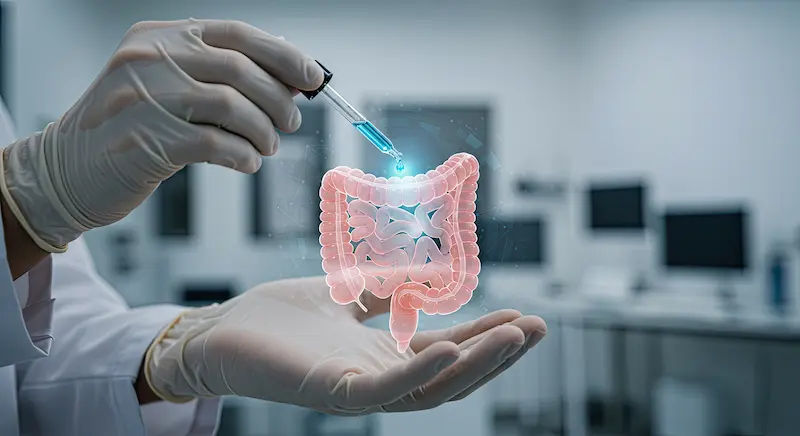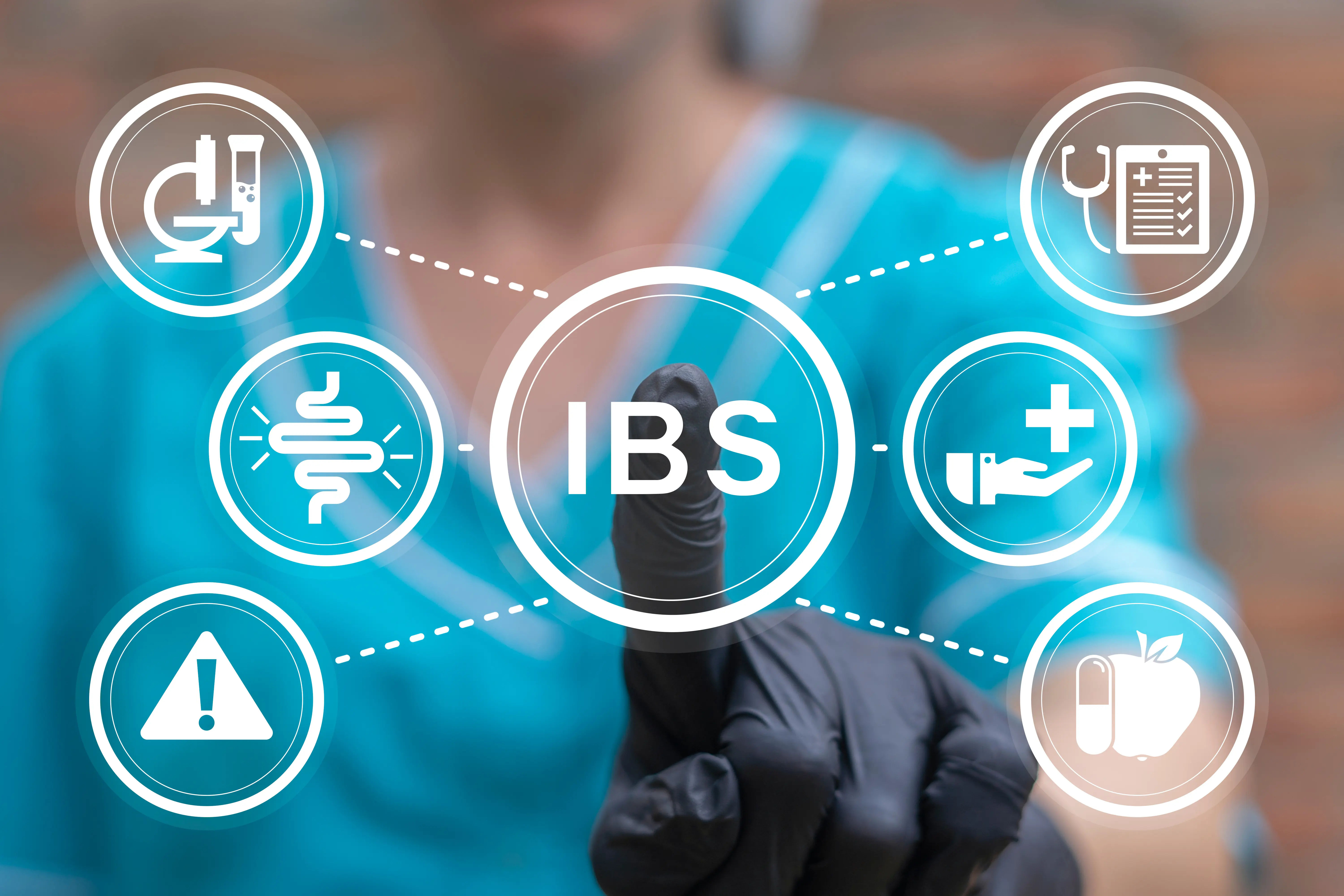Your Guide to Understanding and Managing Irritable Bowel Syndrome
Learn everything you need to know about Irritable Bowel Syndrome (IBS), from symptoms and causes to effective treatments, diet strategies, and lifestyle tips for better gut health.


Introduction
Have you ever experienced persistent abdominal cramping, relentless bloating, or unpredictable swings between diarrhoea and constipation? If so, you might be among the millions navigating life with Irritable Bowel Syndrome (IBS). This common functional gastrointestinal disorder doesn't damage your digestive tract but can significantly impact your quality of life. It's a complex condition shrouded in misunderstanding, often leaving sufferers feeling alone and frustrated. This comprehensive guide is designed to demystify IBS. We'll break down everything from its elusive causes and tell-tale symptoms to the latest, most effective management strategies. Whether you're newly diagnosed or have been managing it for years, this article will provide valuable insights to help you take back control of your gut health and live more comfortably.
What Exactly is Irritable Bowel Syndrome (IBS)?
Irritable Bowel Syndrome is classified as a functional gastrointestinal disorder. This means the issue lies with how the gut functions—how the brain and gut work together—rather than a disease that causes visible damage, like inflammation or ulcers. Think of it as a glitch in the software of your digestive system, not a hardware failure. The nerves and muscles in the bowel become hypersensitive, overreacting to stimuli like food, gas, and stress. This leads to the uncomfortable and often painful symptoms characteristic of IBS. It's a chronic condition that requires long-term management, but it's crucial to know that IBS does not increase your risk of colorectal cancer or other serious bowel diseases.
IBS vs. IBD: Understanding the Crucial Difference
A common point of confusion is the difference between IBS (Irritable Bowel Syndrome) and IBD (Inflammatory Bowel Disease). While the acronyms are similar, the conditions are fundamentally different. IBD, which includes Crohn's disease and ulcerative colitis, involves chronic inflammation that causes visible damage to the intestinal lining. This damage can be seen during a colonoscopy and often leads to more severe complications. IBS, on the other hand, does not cause inflammation or permanent harm. The confusion arises because symptoms like abdominal pain and diarrhoea can overlap. However, IBD symptoms may also include weight loss, rectal bleeding, and fever, which are not typical of IBS. A proper diagnosis from a gastroenterologist is essential to distinguish between the two.
Recognising the Symptoms: More Than Just a Tummy Ache
IBS symptoms can vary widely from person to person and even fluctuate from day to day in the same individual. This variability is a hallmark of the condition and can make it tricky to identify.
Common Symptoms Everyone Should Know
The most prevalent symptoms form a cluster that doctors look for:
- Abdominal Pain and Cramping: This is the most common symptom, often described as a crampy pain that is frequently relieved by passing a bowel movement.
- Altered Bowel Habits: This is where the subtypes come in. You may experience IBS with diarrhoea (IBS-D),
- IBS with constipation (IBS-C), or a mixed pattern (IBS-M).
- Bloating and Gas: A feeling of abdominal fullness and visible distension is extremely common, often worsening throughout the day.
- Food Intolerance: Many people with IBS identify specific foods that reliably trigger their symptoms.
- Mucus in Stool: This can be a sign of IBS and is generally not a cause for alarm unless accompanied by blood.
The Four Subtypes of IBS
Understanding your subtype is key to targeted management:
- IBS-D (Diarrhoea-Predominant): Bowel movements are typically loose, watery, and urgent.
- IBS-C (Constipation-Predominant): Bowel movements are infrequent, hard, and lumpy, and may be difficult to pass.
- IBS-M (Mixed): You experience alternating periods of diarrhoea and constipation.
- IBS-U (Unsubtyped): Symptoms do not fit neatly into the above categories.
What Causes IBS? The Complex Puzzle
The exact cause of IBS remains unknown, but research points to a combination of factors that likely work together.
The Gut-Brain Axis: How Your Mind Affects Your Gut
This is a critical concept in understanding IBS. The gut and brain are in constant communication via nerves, hormones, and signals from gut microbes. In IBS, this axis is miscommunicating. Signals from the gut may be misinterpreted by the brain, leading to overreaction in the intestines (causing pain, spasms). Conversely, stress or anxiety from the brain can trigger symptoms in the gut. This explains why stress management is not just a wellness tip but a core component of IBS treatment.
Potential Triggers and Risk Factors
- Muscle Contractions in the Gut: Stronger and longer-lasting contractions can cause gas, bloating, and diarrhoea. Weaker contractions can slow food passage and lead to hard, dry stools.
- Nervous System Abnormalities: Poorly coordinated signals between the brain and the nerves in your digestive system can cause your body to overreact to normal digestive processes.
- Severe Infection: Post-infectious IBS can develop after a severe bout of gastroenteritis caused by bacteria or a virus.
- Early Life Stress: People exposed to stressful events, especially in childhood, tend to have a higher incidence of IBS.
- Changes in Gut Microbes: The bacteria, viruses, and fungi that reside in your intestines (microbiome) differ in people with IBS compared to those without.
Getting a Diagnosis: How Doctors Identify IBS
Since there is no single definitive test for IBS, diagnosis is a process of meeting certain criteria and ruling out other conditions.
Consult an Gastroenterologist for the best advice
The Rome IV Criteria: The Gold Standard
Doctors typically use the Rome IV criteria, which requires:
- Recurrent abdominal pain, on average, at least 1 day/week in the last 3 months.
- Associated with two or more of the following:
- Related to defecation.
- Associated with a change in frequency of stool.
- Associated with a change in form (appearance) of stool.
Tests to Rule Out Other Conditions
To ensure your symptoms aren't caused by something else, a doctor may order tests. These can include blood tests to check for anaemia, coeliac disease, or infection; stool tests to look for parasites or inflammation (calprotectin); and procedures like a colonoscopy or breath test for small intestinal bacterial overgrowth (SIBO). If your symptoms are new or include red flags like weight loss or rectal bleeding, it is crucial to consult a doctor for a thorough evaluation. Platforms like Apollo24|7 allow you to easily connect with a gastroenterologist online to discuss your symptoms and determine the necessary next steps.
Taking Control: Effective Management and Treatment Strategies
Managing IBS is highly individualised. What works for one person may not work for another. A multi-faceted approach is often most successful.
Dietary Changes: The Power of Food
The Low FODMAP Diet: A Step-by-Step Approach
This is one of the most evidence-backed dietary interventions. FODMAPs (Fermentable Oligosaccharides, Disaccharides, Monosaccharides, and Polyols) are short-chain carbohydrates that are poorly absorbed in the small intestine and ferment in the colon, causing IBS symptoms. The diet involves:
- Elimination: Strictly avoiding high-FODMAP foods for 4-8 weeks.
- Reintroduction: Systematically challenging with specific FODMAP groups to identify personal triggers.
- Personalisation: Reintegrating tolerated foods to create a sustainable, long-term diet. This process should ideally be guided by a registered dietitian.
Other Helpful Dietary Tips
- Eat smaller, more frequent meals.
- Stay hydrated, especially if you have IBS-D.
- Limit caffeine and alcohol, which can stimulate the intestines.
- Consider peppermint oil capsules, which have antispasmodic properties that can relieve pain and bloating.
Lifestyle Modifications: Stress and Routine
- Regular Exercise: Physical activity helps reduce stress and stimulates normal contractions of your intestines.
- Stress Reduction Techniques: Practices like yoga, meditation, deep breathing exercises, and cognitive-behavioural therapy (CBT) can significantly improve the gut-brain communication and reduce symptom severity.
Medications for Symptom Relief
Medications target specific symptoms:
- For IBS-C: Fibre supplements, laxatives, lubiprostone, linaclotide.
- For IBS-D: Loperamide, eluxadoline, rifaximin.
- For Pain: Antispasmodics (e.g., hyoscine), low-dose antidepressants (which can help modulate pain signals in the gut).
The Role of Therapy and Mental Health
Given the strong gut-brain connection, psychological therapies are powerful tools. Gut-directed hypnotherapy has a strong evidence base for reducing visceral hypersensitivity and improving central nervous system control of the gut. If your condition does not improve after trying dietary and lifestyle methods, discussing these options with a therapist or a doctor from Apollo24|7 can open new pathways to relief.
Living Well with IBS: A Conclusion and Path Forward
Living with Irritable Bowel Syndrome is a journey, not a destination. It requires patience, experimentation, and self-compassion. While the condition can be frustrating and unpredictable, it is also highly manageable. The key lies in becoming an expert on your own body—identifying your unique triggers, whether they are specific foods, stressful situations, or disruptions in routine. By adopting a multi-pronged strategy that addresses diet, lifestyle, and mental well-being, you can significantly reduce the frequency and severity of flare-ups and reclaim your quality of life. Remember, managing IBS is not about achieving perfection but about building a toolkit of strategies that work for you. If you feel overwhelmed, remember that you don't have to navigate this alone. Take the first step towards better gut health today by consulting with a healthcare professional to create a personalised management plan.
Conclusion
Irritable Bowel Syndrome may be a long-term condition, but it doesn’t have to control your life. With the right blend of dietary adjustments, lifestyle changes, and stress management, most people can find significant relief from symptoms and enjoy a better quality of life. The key is understanding your own body, identifying your unique triggers, and building a personalised management plan with the help of healthcare professionals. Remember, IBS is manageable, and with patience and support, you can regain comfort, confidence, and control over your gut health.
Consult an Gastroenterologist for the best advice
Consult an Gastroenterologist for the best advice

Dr. Jatin Yegurla
Gastroenterology/gi Medicine Specialist
11 Years • MD (PGI), DM (AIIMS Delhi), FAGIE (AIIMS Delhi), ESEGH (UK), Gold Medalist
Hyderabad
Apollo Hospitals Jubilee Hills, Hyderabad
(650+ Patients)

Dr. Chethan T L
General Physician/ Internal Medicine Specialist
5 Years • MBBS, MD, DNB (General Medicine)
Bengaluru
Apollo Medical Center, Marathahalli, Bengaluru

Dr. Amit Pandita
Gastroenterology/gi Medicine Specialist
10 Years • MBBS. MD (INTERNAL MEDICINE) DrNB (GASTROENTEROLOGY AND HEPATOLOGY)
Delhi
Apollo Hospitals Indraprastha, Delhi

Dr Piyush Vishwakarma
Gastroenterology/gi Medicine Specialist
11 Years • MBBS, MD, DrNB,
Delhi
Apollo Hospitals Indraprastha, Delhi

Dr. Aakash Garg
Gastroenterology/gi Medicine Specialist
12 Years • MBBS, DNB (Medicine), DrNB (Gastroentrology).
Bilaspur
Apollo Hospitals Seepat Road, Bilaspur
(150+ Patients)
Consult an Gastroenterologist for the best advice

Dr. Jatin Yegurla
Gastroenterology/gi Medicine Specialist
11 Years • MD (PGI), DM (AIIMS Delhi), FAGIE (AIIMS Delhi), ESEGH (UK), Gold Medalist
Hyderabad
Apollo Hospitals Jubilee Hills, Hyderabad
(650+ Patients)

Dr. Chethan T L
General Physician/ Internal Medicine Specialist
5 Years • MBBS, MD, DNB (General Medicine)
Bengaluru
Apollo Medical Center, Marathahalli, Bengaluru

Dr. Amit Pandita
Gastroenterology/gi Medicine Specialist
10 Years • MBBS. MD (INTERNAL MEDICINE) DrNB (GASTROENTEROLOGY AND HEPATOLOGY)
Delhi
Apollo Hospitals Indraprastha, Delhi

Dr Piyush Vishwakarma
Gastroenterology/gi Medicine Specialist
11 Years • MBBS, MD, DrNB,
Delhi
Apollo Hospitals Indraprastha, Delhi

Dr. Aakash Garg
Gastroenterology/gi Medicine Specialist
12 Years • MBBS, DNB (Medicine), DrNB (Gastroentrology).
Bilaspur
Apollo Hospitals Seepat Road, Bilaspur
(150+ Patients)
More articles from Irritable Bowel Syndrome
Frequently Asked Questions
What is the best diet for someone with IBS?
There is no single 'best' diet for IBS, as triggers are highly individual. The most scientifically supported approach is the Low FODMAP diet, which is done in phases to identify personal trigger foods. A balanced diet rich in soluble fibre (like oats and psyllium) is also often beneficial. It's best to work with a dietitian.
Can IBS be cured?
There is currently no cure for IBS, as it is a chronic functional disorder. However, it is absolutely manageable. With the right combination of dietary changes, stress management, and sometimes medication, most people can achieve significant symptom control and live a normal, active life.
Is IBS a sign of a more serious disease like cancer?
No. IBS itself does not cause cancer or increase your risk of developing colorectal cancer. However, some symptoms of IBS can overlap with more serious conditions. This is why it's important to get a proper diagnosis from a doctor to rule out other causes, especially if you experience 'red flag' symptoms like unexplained weight loss, rectal bleeding, or persistent pain that wakes you from sleep.
How can I relieve IBS pain instantly at home?
For immediate relief during a flare-up, try applying a heating pad to your abdomen to relax muscle spasms. Sipping on peppermint tea or taking a peppermint oil capsule can have a natural antispasmodic effect. Gentle abdominal massage and finding a comfortable, relaxed position (like lying on your side with knees bent) can also help.
Are probiotics good for IBS?
The evidence on probiotics for IBS is mixed. Some strains may help with overall symptoms, bloating, and gas for certain individuals, but others may not see a benefit. It's not a one-size-fits-all solution. If you want to try them, choose a reputable brand with a specific strain studied for IBS (like Bifidobacterium infantis) and give it at least a month to see if it helps.




